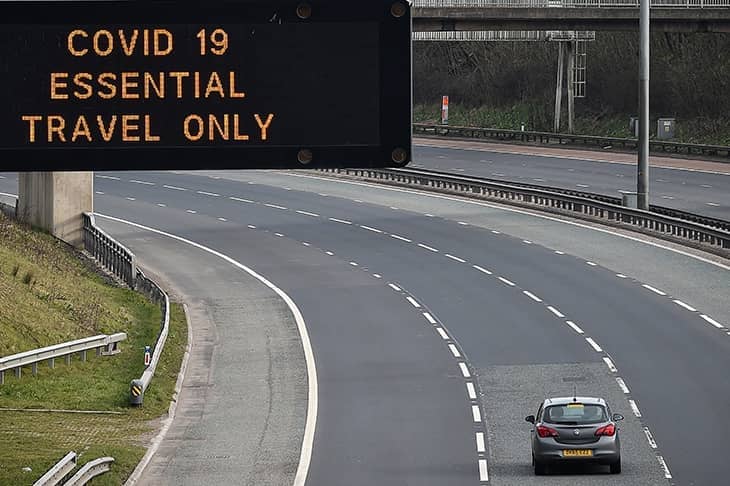I’m optimistic that the government won’t implement ‘Plan B’, let alone impose another lockdown — but not because sceptics like me have won the argument. Why do I say that? Because the public debate is about whether another lockdown is necessary, with the participants on both sides taking it for granted that non-pharmaceutical interventions are an effective way of suppressing infections. For at least a year, sceptics have been arguing that these don’t work, pointing to numerous research studies showing that the rise and fall of infections in different regions of the world has no correlation with stay-at-home orders, mask mandates, business and school closures, etc. But this argument has fallen on deaf ears.
One explanation — the one I like best — is that we made the mistake of trying to appeal to reason. This was a point made by David McGrogan, a professor at Northumbria law school, in a piece for my sceptical website. ‘I am somebody who encourages students to investigate and debate facts for a living. So this has been a very bitter pill for me to swallow indeed, but the reality is that most people are just not actually interested in finding out the truth for themselves. They are much more interested in conforming with what they perceive to be the “moral truth” — the prevailing moral norm.’ The reason the vast majority of the public supported lockdowns is because they believed they were the ‘right’ thing to do.
Given that we were going against the prevailing wisdom we couldn’t afford to make any mistakes
Of course, the lockdown enthusiasts wouldn’t have been so quick to conform to that ‘moral truth’ without believing that lockdowns actually did what they said on the tin. But I was astonished by how many intelligent people just swallowed the government line without subjecting it to proper scrutiny — particularly as lockdowns meant the surrender of our liberty on an unprecedented scale, as Lord Sumption has pointed out ad infinitum. It was as if such people were yearning for the social solidarity usually available only during wartime. And the flipside of that — denouncing anyone who refused the accept the restrictions — also had wide appeal. No doubt the government helped this process along by spending hundreds of millions bombarding us with propaganda, much of it designed by behavioural psychologists to penetrate our reptile brains.
But I think the sceptics have to accept some responsibility for their failings. Common sense dictates that if you confine most people to their homes then infections will start to fall, so if we’re going to persuade people that lockdowns don’t work we need a compelling theory as to why that hypothesis is false. We never came up with one. We also got a lot of things wrong at the beginning, such as saying there wouldn’t be a second wave and, when the second wave was upon us, claiming it was a ‘casedemic’ not an epidemic. I don’t think we got more things wrong than the enthusiasts —take their prediction that daily infections would rise to 100,000 after ‘freedom day’, for instance — but given that we were arguing against the prevailing wisdom we couldn’t afford to make any mistakes. In retrospect, I wish I’d been more cautious.
The reason I think another lockdown is unlikely is threefold. First, the vaccines. I don’t mean they’ve succeeded in suppressing infections where lockdowns failed: they do that a bit, but not much. Rather, Boris is reluctant to surrender the political capital he’s earned from the success of the vaccine rollout, which he would if he imprisoned us in our homes again. Second, public enthusiasm for lockdowns is waning, something evident from recent polling by Kekst CNC. In May, 61 per cent of the public prioritised limiting the spread of the virus over protecting the economy; today, it’s 42 per cent. I don’t know if that’s because nearly 80 per cent of adults are double-jabbed and less worried about catching it, or because the sense of social solidarity has faded. Probably a bit of both.
Finally, two of the most effective lobbyists for lockdowns in the government — Matt Hancock and Michael Gove — have both been moved. No doubt Michael still has Boris’s ear, but he’s no longer the de facto deputy prime minister driving Covid policy. Recent cabinet appointments have given Boris more room to manoeuvre and — whisper it — I’m almost certain he’s a lockdown sceptic. I would claim this as a victory, but I suspect he’s been one all along and just hasn’t been able to impose his will until now. So I think we’re in the clear, but it was no thanks to my small band of dissidents.







Comments